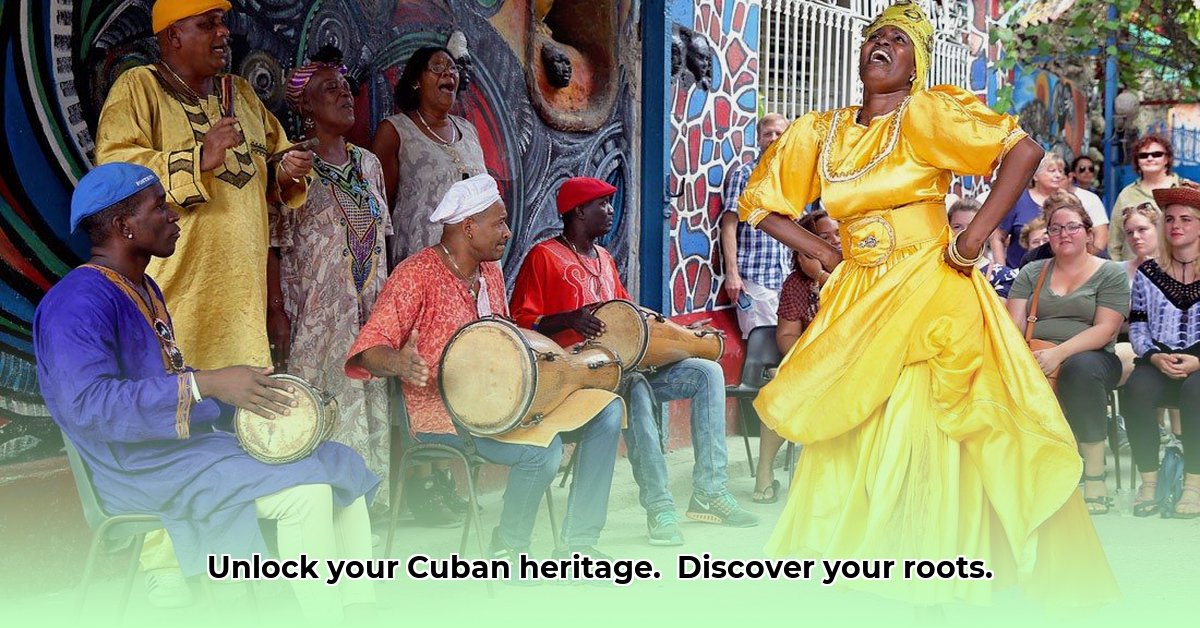Ever wonder about the story hidden in your Cuban last name? It’s more than just a name; it’s a window into centuries of Cuban history, a blend of cultures, and a family’s journey. This article explores the world of Cuban surnames, from their Spanish, African, and Taíno roots to the unique way Cubans inherit two last names. We’ll examine what those names mean, how they’ve shaped Cuban society, and how they’re still important today. Whether you’re a history enthusiast, a curious traveler, or simply interested in your family’s origins, prepare for a journey through time and culture. Plus, we’ll provide tips on tracing your own family history! For a deeper dive into name origins, check out this resource on [name meanings](https://theblaregroup.com/chinese-name-meaning/).
Cuban Last Names: Unlocking Your Family’s Island Story
Delve into the intriguing world of Cuban surnames – family names that whisper stories of history, heritage, and identity. Think of your last name; it’s more than just a label. It’s a link to generations past, a legacy passed down through time – a passport to understanding the complex history of Cuba, showcasing its cultural identity.
A Cultural Tapestry: The Origins of Cuban Surnames
The history of Cuban last names is a captivating blend of different cultures. It begins with the Spanish conquistadors who arrived in the 15th century. Their influence on the island’s naming conventions is undeniable. Many common Cuban surnames – names like Rodriguez, Garcia, and Martinez – are directly inherited from Spanish ancestors. These are often patronymic (derived from the father’s name), meaning they literally signify “son of…” followed by the father’s name, reflecting the importance of paternal lineage.
However, the Cuban narrative includes a vibrant mix of influences. The arrival of enslaved Africans and their descendants significantly impacted the island’s demographics. While tracing the origins of African-derived surnames is challenging due to limited historical records, their presence is woven into Cuban identity. Their contribution to the island’s culture – including its language and naming conventions – is significant. The indigenous Taíno population, diminished post-colonization, also lent their linguistic influence to surnames. Researchers are exploring the extent of this contribution, highlighting what remains to be learned about Cuban naming traditions. Further research could reveal deeper connections to these ancestral influences.
The Unique Cuban Double-Surname System
One defining feature of Cuba’s naming conventions is its double-surname system. Unlike many cultures, Cubans traditionally inherit both their father’s and mother’s surnames. This practice emphasizes family heritage and represents a cultural statement about both paternal and maternal lineages. It’s a way to acknowledge both sides of the family tree. This custom isn’t just practical; it’s a cultural reflection of the value placed on family history and extended kinship, creating a unique sense of identity connected to both family branches.
Consider the tapestry created by connecting generations through this dual surname system! Does your dual surname strengthen your ancestral roots? It can provide rich insights into your ancestry.
Decoding the Clues: Exploring Common Cuban Surnames
Let’s examine some common Cuban surnames and their possible origins to illustrate the island’s legacy.
| Surname | Possible Origin | Meaning or Implication | Additional Insights |
|---|---|---|---|
| Rodríguez | Spanish patronymic | Son of Rodrigo | Rodrigo itself may be of Germanic origin, meaning “famous power.” It’s one of the most prevalent surnames in Cuba and the Spanish-speaking world, showcasing its historical significance. |
| García | Spanish patronymic/Basque origin | Uncertain; possibly “bear” or “young” in Basque | This surname is incredibly common in Spain and Latin America. Its etymology is debated, with some suggesting Basque origins predating Roman influence. This could indicate ancient roots stretching back centuries. |
| Hernández | Spanish patronymic | Son of Hernán | Derived from the Germanic name Herman, meaning “army man.” It’s another widely distributed surname throughout the Hispanic world, reflecting migration patterns and historical connections within the Spanish Empire. |
| Álvarez | Spanish patronymic | Son of Álvaro | Álvaro is a name with Visigothic origins, possibly meaning “all wise” or “elf army.” This suggests a connection to the Germanic tribes that influenced the Iberian Peninsula during the Middle Ages. It highlights the impact of cultural exchange and migration on naming practices. |
| Pérez | Spanish patronymic | Son of Pero (an archaic form of Pedro, meaning Peter) | Peter comes from the Greek word “petros,” meaning “stone” or “rock.” This surname is extremely common across the Spanish-speaking world, emphasizing its long-standing presence and widespread adoption. It reflects the influence of Christianity and the use of biblical names. |
| González | Spanish patronymic | Son of Gonzalo | Gonzalo is thought to be derived from Germanic elements meaning “battle” or “war.” This surname is associated with nobility in certain historical contexts, indicating possible aristocratic connections for families bearing this name. It underscores the influence of Germanic heritage on Spanish and Cuban naming traditions. |
| López | Spanish patronymic | Son of Lope | Lope is derived from the Latin word “lupus,” meaning “wolf.” This surname is frequently found in Spain and Latin America. The wolf symbolizes strength, resilience, and a connection to nature. It could indicate ancestral associations with hunting, wilderness, or protective qualities. |
| Martínez | Spanish patronymic | Son of Martín | Martín has roots in the Roman name Martinus, meaning “of Mars,” the god of war. The name suggests a connection to the Roman Empire and reflects military or warrior-like qualities. This underscores the enduring impact of Roman civilization on the Iberian Peninsula and its subsequent cultural influence on the Americas. |
| Díaz | Spanish patronymic | Son of Diego | Diego’s etymology is debated, with possible links to the Greek word “didache,” meaning “teaching.” This surname is common in Spain and Latin America. It might connote wisdom, knowledge, or a family known for education and guidance. It illustrates the diverse and sometimes uncertain origins of seemingly simple surnames. |
| Suarez | Spanish patronymic | Son of Suero | Suero has connections to the Medieval Latin word “Suarius,” possible relating to a region of Spain known as Suarez. This surname suggests a connection to a Germanic tribe known as the Suevi who were located in that region. |
These interpretations are possibilities. The meaning of your surname may have evolved through generations and is nuanced. For example, while many names appear to be Spanish, some may have originated from other parts of Europe or taken on new meaning once in Cuba.
Beyond the Names: Social and Cultural Implications
The significance of Cuban surnames extends beyond their origins; they reflect social and class structures. During colonial times, certain surnames carried status associated with wealth, power, or aristocratic ties. Those connections and their implications are subjects of research. Surname distribution patterns can help us understand migration and settlement history. For instance, areas with a concentration of certain surnames may indicate where families first settled on the island.
Cuban surnames remain a key component of personal identity, connecting individuals to their history and providing a sense of heritage and belonging. This connection strengthens community ties and fosters cultural pride and tradition. The meaning of your family name is unique to your family’s history.
Continuing the Journey: Uncovering the Mysteries
This exploration of Cuban surnames is just the beginning. Much remains to be discovered about the evolution of these family names and their significance. Scholars continue to delve deeper into the historical records, seeking to illuminate the stories embedded in these identifiers. Each surname represents a unique journey, a narrative waiting to be unfolded.
So, what does your Cuban last name tell you about your family’s history? Take a moment to consider your roots. There’s a story waiting to be discovered. Your family’s name is a key to unlocking your connection to the history of Cuba.
Tracing African and Taíno Influences in Cuban Surnames
Uncover the story within your Cuban last name – a testament to the island’s history. Unravel the threads of African and Taíno heritage woven into Cuban surnames.
The Fusion of Names
Cuban surnames reflect Spanish, African, and Taíno influences; a tapestry, with each thread representing a cultural contribution. The Spanish colonial era shaped naming practices, yet the presence of African and indigenous populations is etched in the island’s onomastics (the study of the origin and history of names).
Spanish Roots
Initially, Spanish conquistadors imposed their naming system. Many common Cuban surnames originated in Spain, reflecting geographic locations, occupations, or patronyms (names derived from fathers). Surnames like Rodriguez (son of Rodrigo), Garcia (son of Garcia), or geographic origins like Alvarez (from Alba), reveal the Spanish influence.
African Influences
The transatlantic slave trade impacted Cuban society, an impact that’s reflected in surnames. Many enslaved Africans were given










